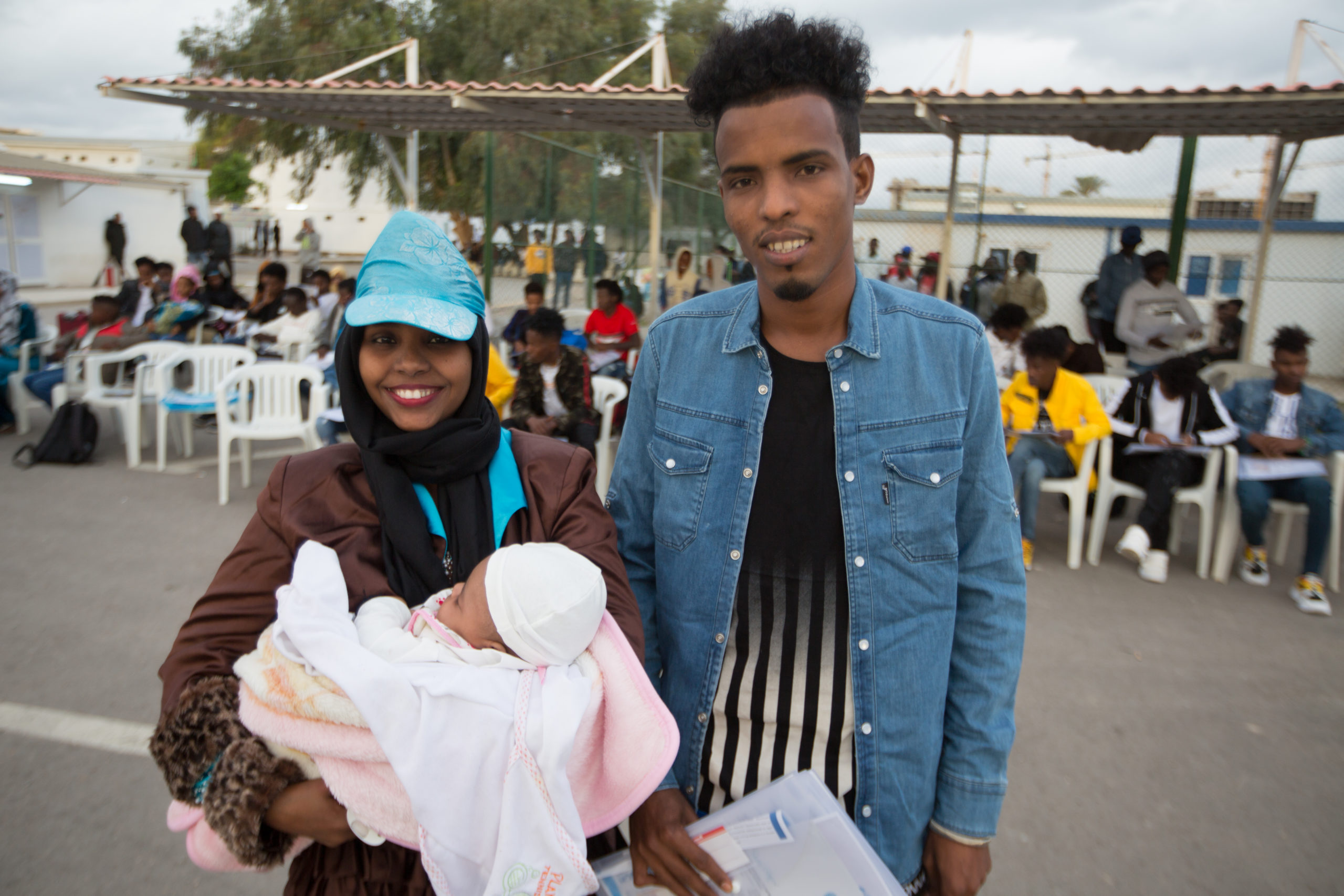Libya in Turmoil
Crisis in Libya: Dying for a chance to live
Photo: ©UNHCR/Hereward Holland
Please help these families with life-saving humanitarian assistance and safer routes to a new life.

Shelter

Essential items

Cash Assistance
What’s happening in Libya?
Libya remains Africa’s main departure point to Europe for migrants seeking safety and opportunity. Hundreds of thousands of refugees and asylum seekers, including young children, have traveled to Libya to reach Europe, trying to find a safe place to call home after fleeing devastating violence, persecution and conflict at home. Those who do choose to make the dangerous journey across the Mediterranean are at risk of drowning, turned away when they reach a port, or are intercepted at sea and sent back to Libya to be held in detention centres. UNHCR needs your support to help with the immediate humanitarian crisis in Libya, and find safe, legal routes for resettlement for refugees and the more than 143,000 Internally Displaced Persons in Libya.
Due to escalating conflict, conditions in Libya are now extremely dangerous for refugees.
Are there any routes to safety?
Those who do choose to make the dangerous journey across the Mediterranean are at risk of drowning and trafficking. Many are turned away when they reach a port, and others are sent back to Libya where they will be sent to live in inhumane detention centers, where they risk starvation, sexual abuse and torture.
Despite UNHCR and other organizations having strengthened their presence and assistance to reach more people on the move in need of international protection, the exposure to risks and abuses along the route has only increased. Poor health conditions correlate closely with extended periods in captivity at the hands of traffickers and smugglers, according to the testimonies of people arriving in Europe from Libya and interviewed by UNHCR. Some reported being held by armed groups for a year or more, usually for ransom or for forced labour.
How can you help?
UNHCR is funded almost entirely by donations from individuals, corporations, and governments. When you support UNHCR’s projects such as the Libya Emergency, you are contributing directly to providing emergency relief to refugees and internally displaced persons in Libya who need it most.
We are on the ground providing immediate humanitarian aid to those arriving, departing or living in Libya. This includes core-relief items, shelter, cash and evacuating the most vulnerable refugees from Libya.
What is a Gathering and Departure Facility?
In December 2018, the Gathering and Departure Facility (GDF) for vulnerable refugees and asylum-seekers opened in Tripoli. The GDF is the first of its kind in the country and is intended to bring vulnerable refugees and asylum-seekers to a safe environment while solutions—including resettlement, family reunification, return to a country of previous admission or evacuation to emergency facilities—are identified. The facility, managed by UNHCR, LibAid and the Ministry of Interior, represents one of a range of measures offering viable alternatives to detention.
Where can I access the latest data and reports?
Libya Operations —UNHCR’s relief work to protect displaced people inside Yemen.
Did you know that on average, one person died for every six people who have arrived in Europe from Libya last year, despite a decrease in arrivals overall?

Preparing for evacuation to Rwanda.
Twenty-year-old Somali refugee Delmar and his wife are ready to leave the Gathering and Departure Facility in Tripoli with their newborn baby Naseem, to start afresh.
Delmar fled Somalia in 2015 after witnessing the death of his father and older brother at the hands of Al Shabab. To reach Libya he travelled through war-torn Yemen, then Sudan, and on arrival he was kidnapped and held in a warehouse in Bani Walid. Kidnappers demanded money and threatened him with torture, beatings and starvation.
With the help of friends and family back home, he managed to collect some money to buy his freedom. During this time, he met his wife and was also able to ensure her release from the traffickers. They decided to cross the Mediterranean to Europe, but their boat was intercepted and they ended up in a detention centre run by Libyan authorities for months until UNHCR advocated for their release.
Photo: ©UNHCR/ Mohamed Alalem
Donate Today
Please help refugee and internally displaced families in Libya.
Donate Today
Please help refugee and internally displaced families in Libya.


